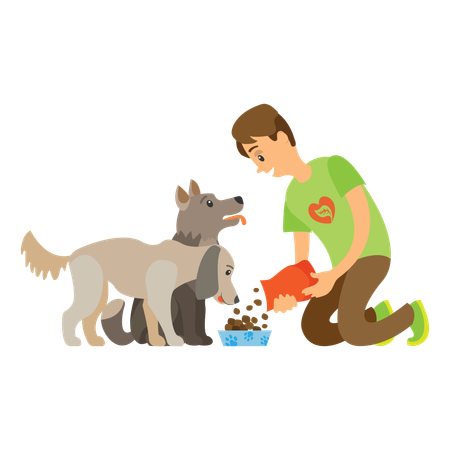
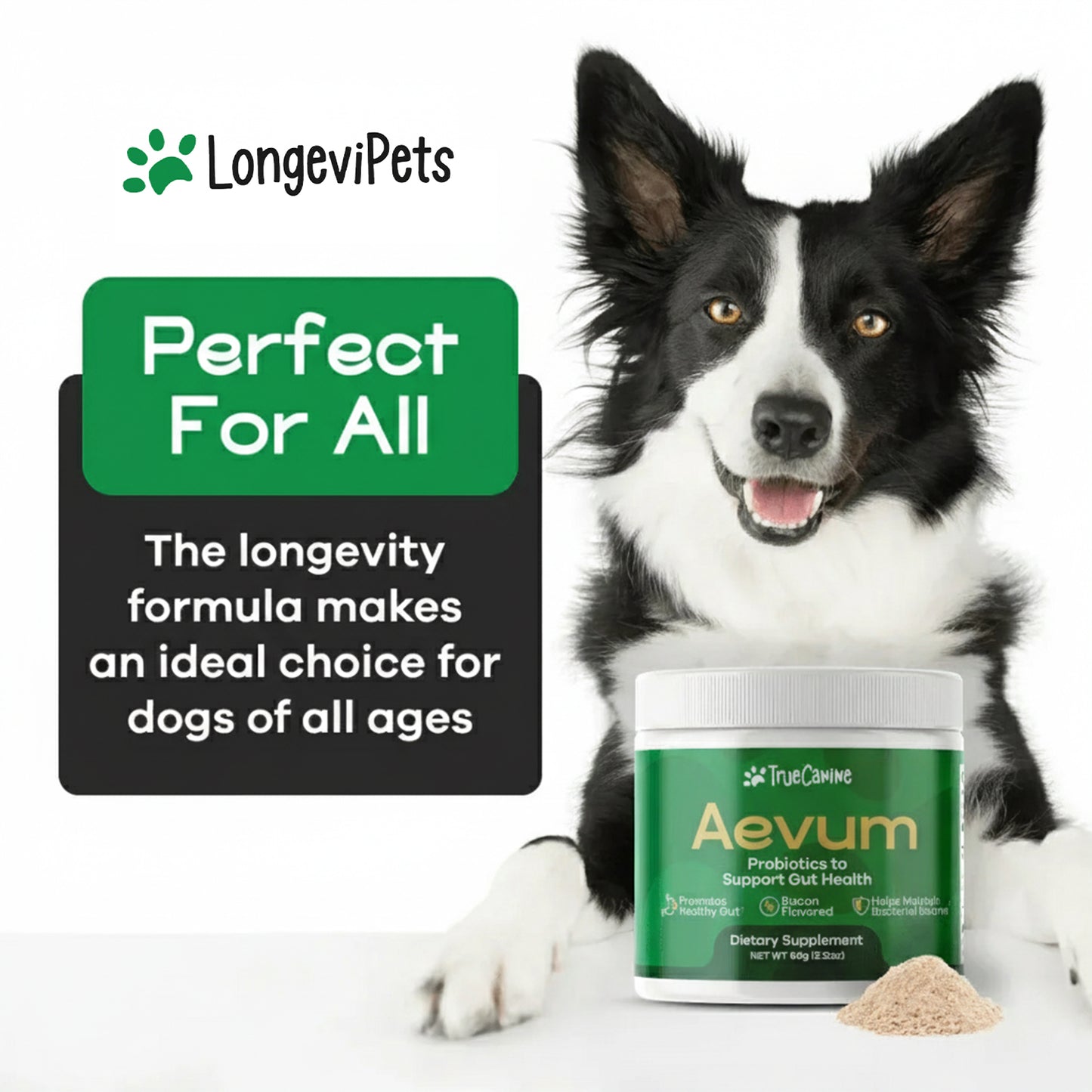
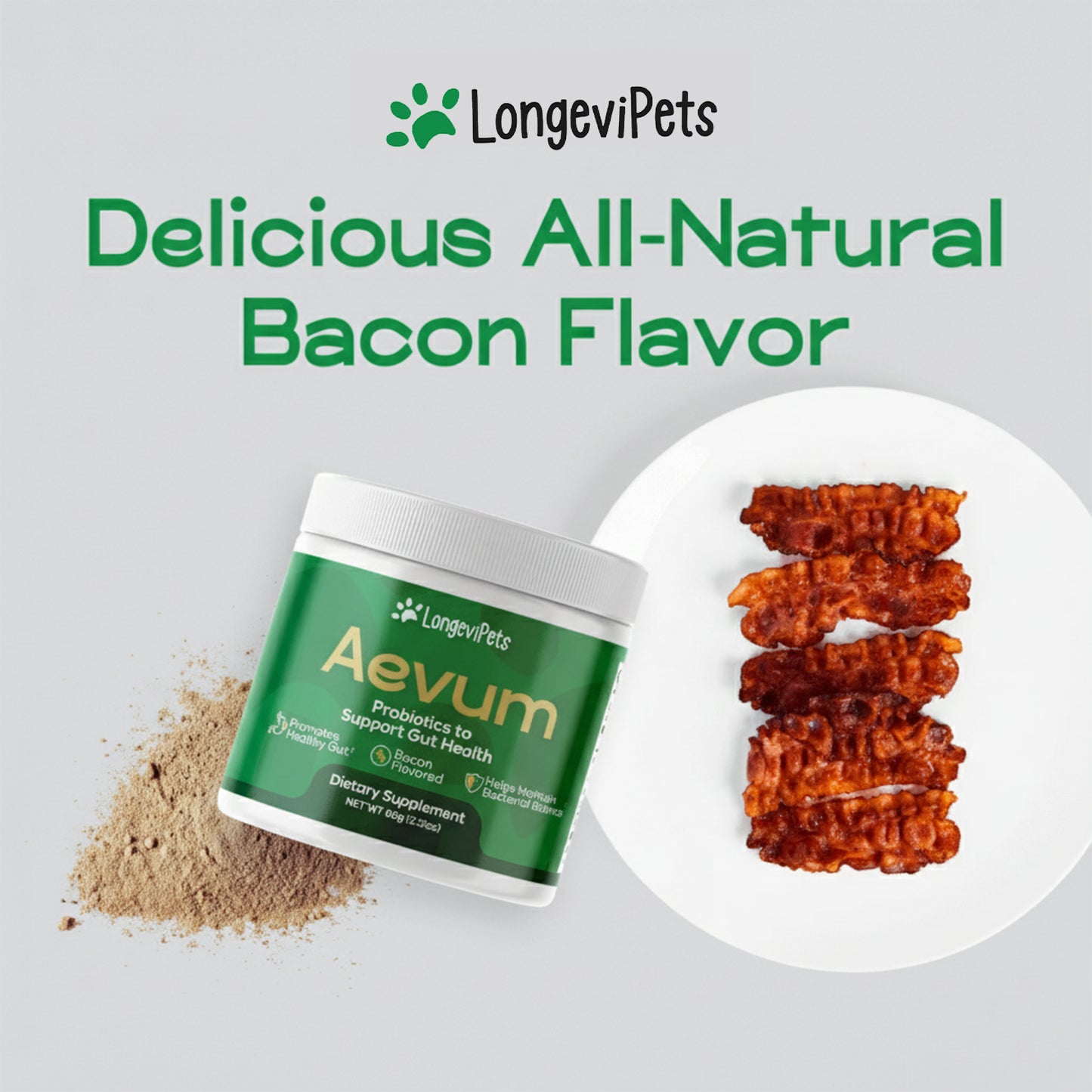


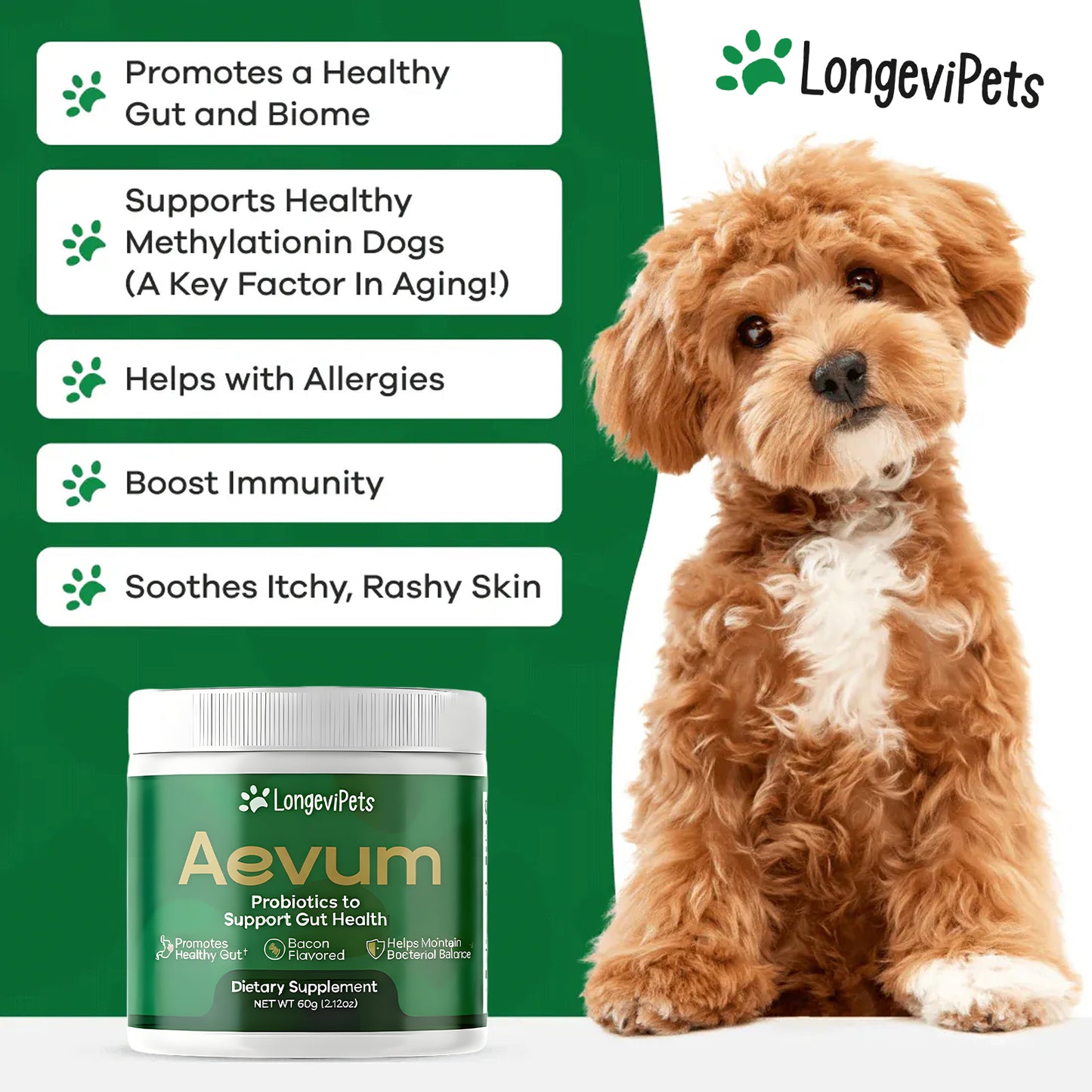
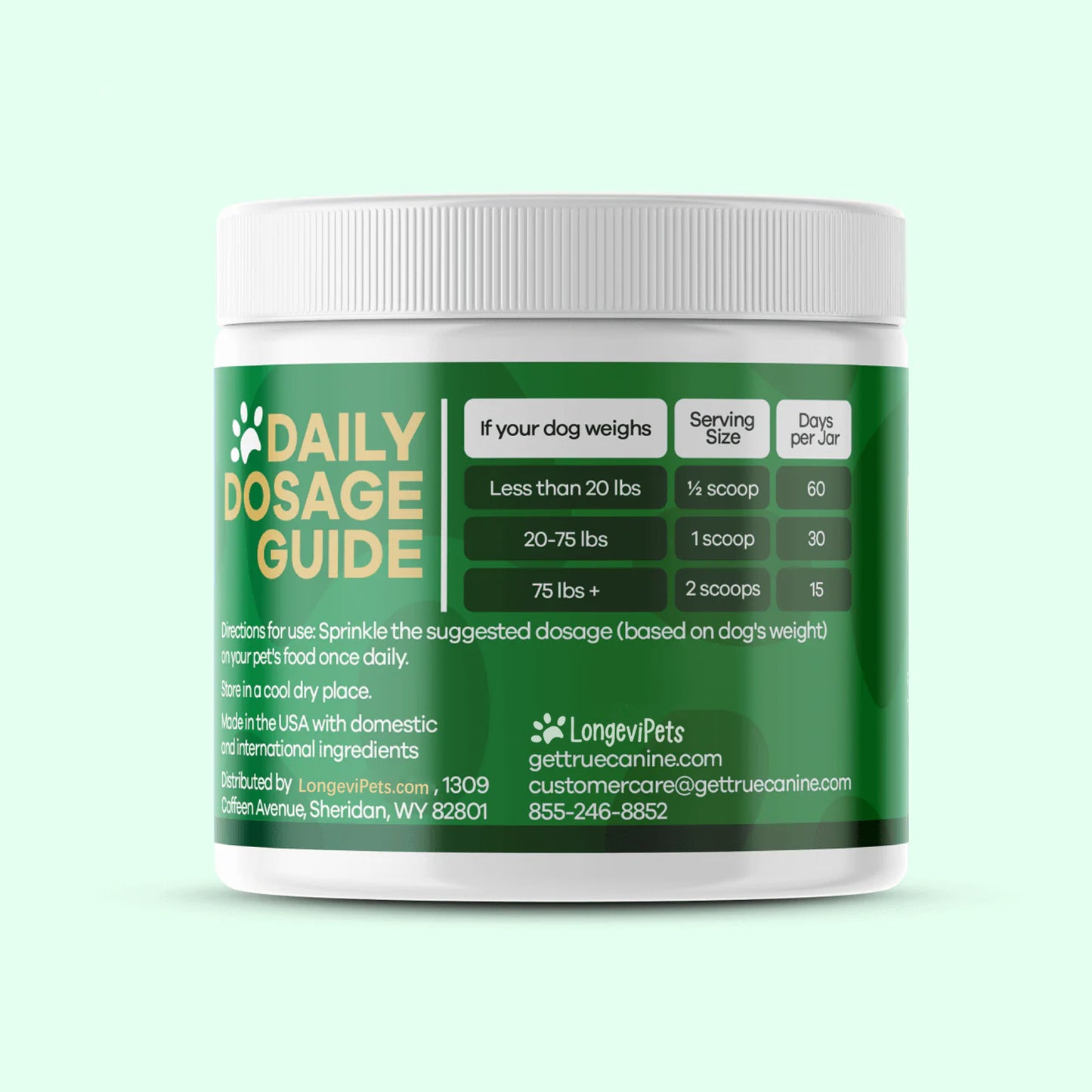
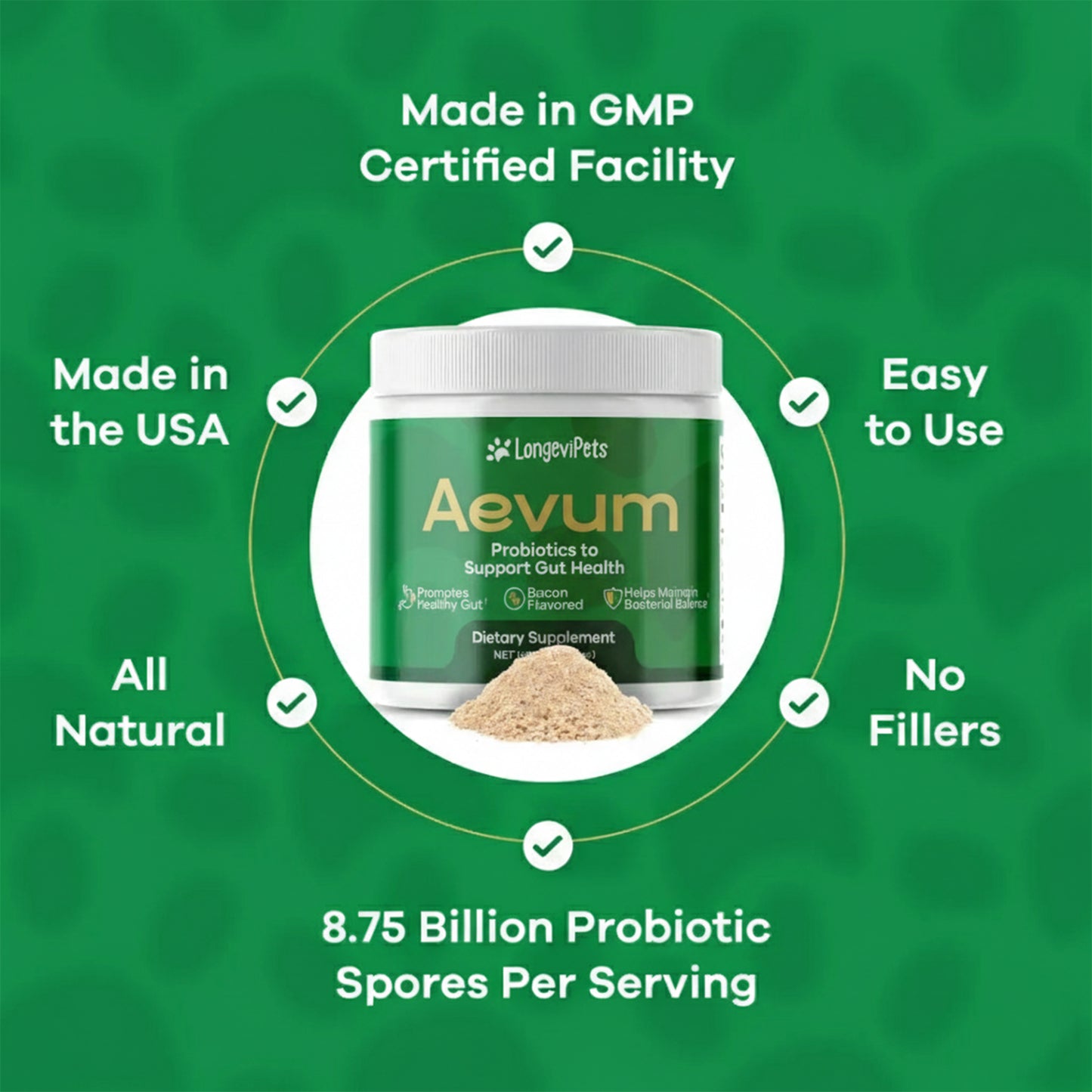

Why Wild Belly Was Created
Wild Belly was formulated with the help of Mark Reese, an expert who has spent over 23 years studying cellular health and aging in mammals. Shortly after Mark’s beloved labrador retriever Lacey turned 8, he noticed big changes in her health and wellbeing.
Lacey began to slow down, lost her energy, struggled on walks, and overall began to “act old.” It happened so suddenly, and despite trying numerous “solutions” Mark was unable to help Lacey get back to being her old self.
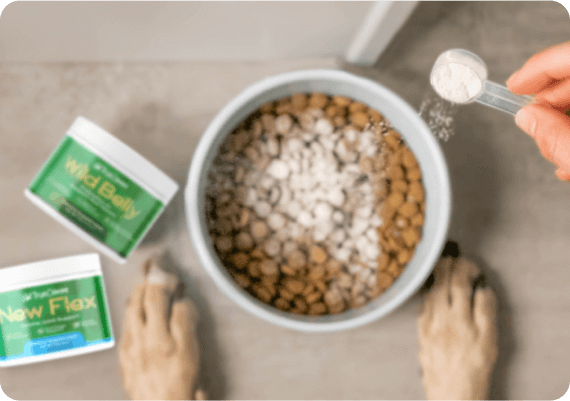
After Lacey passed away, Mark couldn’t shake the feeling that maybe he could have done more to help her. Because of this, Mark threw himself into his research in an effort to understand everything he could about why our dogs’ bodies change for the worse.
After hundreds of hours of studying, Mark realized that many of the world’s leading scientists believed the answer to supporting canine health was optimizedmethylation. This led him to formulate Wild Belly with specific strains of probiotic bacteria that support a dog’s ability to produce folate, which is an essential vitamin that themethylationprocess requires.
Dogs Age Differently Than Humans Do(Here’s Why That’s a Problem)
The reason our dogs age differently than us comes down to something calledmethylation, a biochemical process that tells cells ‘how to act.” When themethylationprocess is optimized and working like it should, your dog is healthy, happy and full of life. When the process is not optimized however, it can lead to health challenges for your dog like rashes, allergies, joint mobility, anxiety, aggression, shedding, and digestive problems.
It might seem surprising that all of those issues are connected tomethylation, but there’s more and more scientific research coming out proving this to be the case.
IN FACT, UCLA, UC Davis, UCSD, Princeton and many other top institutions across America are devoting considerable time and money to understanding methylation.

They are finding that methylation plays a key role in the aging process itself. This actually makes a lot of sense since much of what we call “getting old” is just the phenomenon of cells acting differently than theyonce did.
Here’s the thing though: experts are finding that in dogs, themethylationprocess can begin changing for the worse around the age of two. That’s why so many dog owners start to notice health issues in their four-legged friends as they move from puppyhood to adulthood.

Wild Belly Contains Several Very Specific, Dog-Friendly Strains of Probiotics that Support The Methylation Process and Overall Canine Health

Caption
L. plantarum
This folate-producing strain of probiotic bacteria helps to optimizemethylationand support your dog’s cellular health. Double-blind trials and other studies have found that L. plantarum to be associated with healthy immune systems, less aggression and anxiety, and overall better health markers.1 2 3

Caption
B. longum
A major 2020 study out of Georgetown found that B. longum supports healthymethylation, leading the authors to recommend it be given to animals with allergies and other immune challenges.4Meanwhile, another large randomized trial found that giving dogs a canine-friendly staring of B. longum each day led to healthier skin, fewer rashes, and a shinier coat after just four weeks.5

L. Casei
All the way back in 1972, legendary Yale scientist L.H. Bernstein published several landmark studies showing that L. casei increasedmethylationlevels in dogs.6 7Meanwhile, in modern times multiple clinical trials have found that dog-friendly strains of l. Casei can significantly improve markers of joint swelling and discomfort when consumed regularly.8 9
Thebad newsis that many dogs start having skin, joint, allergy, digestive, and behavioral issues as they enter adulthood.
And the older your dog gets, the more frequent or intense those issues can become.
Thegood newsthough is that there is something simple that you can do to support healthymethylationin your dog. It has to do with a vitamin called folate. Countless studies have found that folate is crucial if you want to achieve optimalmethylation.
Daily Dosage Guide
Please refer to the table below to determine the appropriate supplement dosage based on your dog's weight.
| Dog Weight | Per Serving | Days per Container |
|---|---|---|
| Under 20 lbs (9 kg) | 1/2 scoop | 60 days |
| 20–75 lbs (9–34 kg) | 1 scoop | 30 days |
| Over 75 lbs (34 kg) | 2 scoops | 15 days |
Instructions for Use
- Give once daily by mixing the supplement powder into your dog's food.
- For first-time use, start with half the recommended amount and gradually increase to the recommended dose over one week.
- Ensure your dog has access to plenty of fresh water.
- If your dog has any special health conditions, consult your veterinarian before use.



